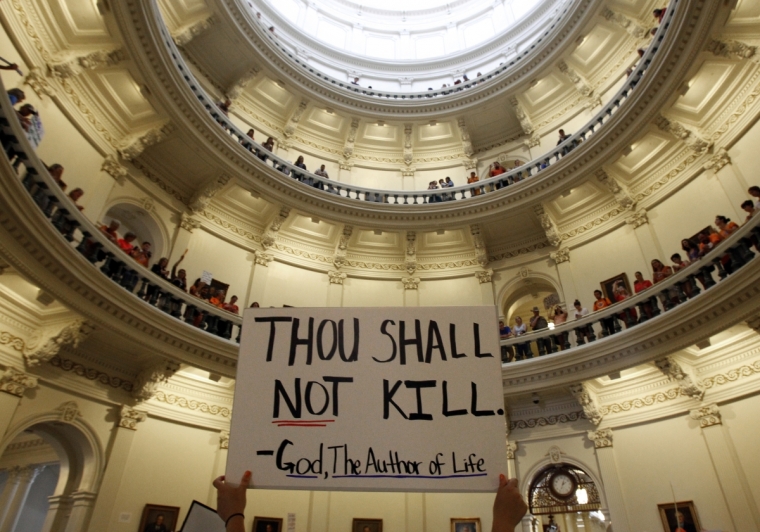At it again: Liberal Supreme Court justices block Texas abortion law

WASHINGTON (Christian Examiner) – The U.S. Supreme Court on June 29 stayed the ruling of the Fifth Circuit Court of Appeals, three weeks after the appellate court ruled Texas' new abortion law – which could effectively shut down all but a handful of clinics in the state – is constitutional.
The court accepted the request for a stay from lawyers representing the pro-abortion plaintiffs, including Whole Women's Health and the Center for Reproductive Rights, among others. Conservative members of the high court, including Chief Justice John Roberts and Justices Clarence Thomas, Antonin Scalia and Samuel Alito, voted against the application for the stay.
HB2 was a constitutional exercise of Texas' lawmaking authority that was correctly and unanimously upheld by the Fifth Circuit Court of Appeals. Texas will continue to fight for higher-quality healthcare standards for women while protecting our most vulnerable – the unborn, and I'm confident the Supreme Court will ultimately uphold this law.
Under the provisions of House Bill 2, passed in 2013 after Democrat State Sen. Wendy Davis's hours-long filibuster, the state now requires physicians who work at abortion clinics to have admitting privileges at an area hospital. The bill also requires the clinics to meet the same health standards as ambulatory surgical centers – or outpatient surgical clinics.
The bill was scheduled to go into effect July 1, but now the clinics may remain open until the Supreme Court disposes of the case either by hearing it or lifting the stay.
Controversy over the law begin shortly after the passage of HB 2 when a federal judge in Austin ruled the law unconstitutional because, the court said, it impeded access to clinics and proved a substantial burden to women seeking an abortion.
The conservative Fifth Circuit, however, overruled the District Court in Austin, ruling that law did not impose a substantial burden on women who had to drive to have abortion. In the ruling, the court allowed one clinic affiliated with Whole Women's Health to remain open in the Rio Grande Valley.
Texas Gov. Greg Abbott, who defended the law at the circuit court as the state's attorney general, issued a statement following the issuance of the stay.
"HB 2 was a constitutional exercise of Texas' lawmaking authority that was correctly and unanimously upheld by the Fifth Circuit Court of Appeals. Texas will continue to fight for higher-quality healthcare standards for women while protecting our most vulnerable – the unborn, and I'm confident the Supreme Court will ultimately uphold this law," Abbott said.
Texas Attorney General Ken Paxton also responded to the Supreme Court's decision to block the implementation of the law, claiming the high court "just put Texas women in harm's way."
"HB 2 ensures abortion clinics and doctors meet basic health standards if they choose to operate their businesses in Texas. Today's delay subjects Texas women to substandard care all to the benefit of the abortion industry's bottom line," Paxton said in a statement.
The Supreme Court will likely announce at the outset of its next session if it will hear a challenge to the Fifth Circuit's ruling.